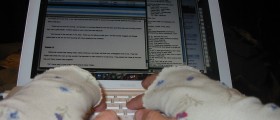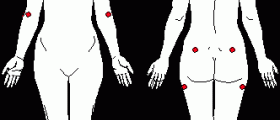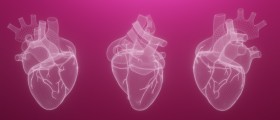Autonomic Nervous System
The autonomic nervous system (ANS) is the “unconscious” or “automatic” nervous system as it is in charge of all unconscious functions of the body including heart rate, breathing, body temperature, perspiration, digestion and sleep pattern.
The autonomic nervous system consists of two sub-systems, the symphatetic nervous system, which accelerates body functions, and parasympathetic nervous system, which slows down body functions. The sympathetic nervous system controls "fight or flight" reactions of the body and prepares the body for action while the parasympathetic nervous system regulates "quiet" functions such as digestion. These two parts of the autonomic nervous system function in perfect balance to regulate the body functions in response to stimulus.
What Is Dysautonomia?
If something goes wrong with the autonomic nervous system, the functions it controls may become either faster or slower which can seriously affect an individual. Malfunction of the autonomic nervous system is medically termed as dysautonomia. In dysautonomia, imbalance in the autonomic nervous system causes one of the two sub-systems to inappropriately predominate.
There are different forms of dysautonomia. Dysautonomic conditions are not life-threatening but may cause debilitating symptoms that can interfere with everyday activities. Chronic fatigue syndrome (CFS), vasovagal or neurocardiogenic syncope, panic attacks, anxiety, inappropriate sinus tachycardia (IST), irritable bowel syndrome (IBS), postural orthostatic tachycardia syndrome (POTS) and fibromyalgia are all dysautonomic conditions. Shy-Drager syndrome and Ruley-Day syndrome are also caused by malfunctioning of the autonomic nervous system.
Mitral valve prolapse syndrome is one of the conditions caused by dysautonomia and may result out of failure of body’s fluid balance control. It causes symptoms like dizziness, lightheadedness and sudden drop in blood pressure when standing up abruptly after sitting down.
Causes and Symptoms of DysautonomiaDysautonomia, formerly known as neurasthenia, can be caused by genetic inheritance, viral infections and injuries. It can be triggered by emotional or physical stress such as severe illnesses, marital problems, financial difficulties, moving to a new house and similar. Dysautonomia can also be caused by a prolonged bed rest after the surgical intervention, breaking a leg and any other cause of deconditioning.
Dysautonomia is associated with a wide range of symptoms including tachycardia, palpitations, difficulty swallowing, dizziness, fainting, poor motor coordination, excessive fatigue, shortness of breath, insomnia, migraines and convulsions. Hypotension, sweating, irritable bowel syndrome, blurred vision, numbness, tingling and different aches and pains are also the symptoms of dysautonomia.
The symptoms tend to come and go and may appear in any combination. Symptoms of dysautonima can be exacerbated by medications such as over-the-counter sinus and cold drugs, caffeine, sudden blood loss and illnesses.

















Your thoughts on this
Loading...